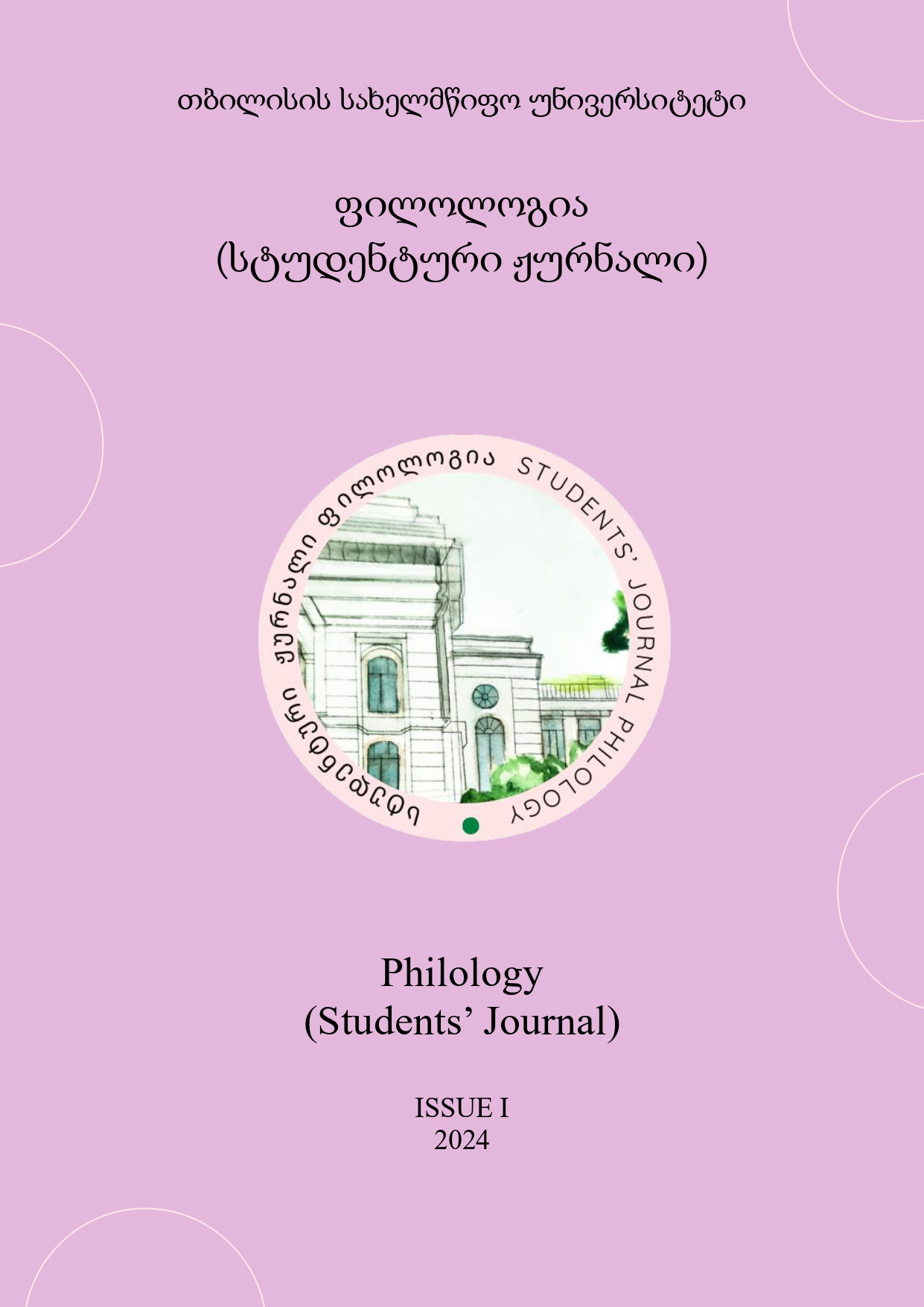ლექსიკური ერთეულის Smart ევოლუცია ინგლისურ ენაში: მტკივნეულიდან ჭკვიანამდე
საკვანძო სიტყვები:
ჭკვიანი, კონოტაცია, სემანტიკა, ლინგვისტური ფაქტორები, მეტაფორული ხიდი, ნეოლოგიზმიანოტაცია
ლექსიკური ერთეულის "smart" ევოლუცია ინგლისურ ენაში ასახავს მის გამორჩეულ განვითარებას თავდაპირველი მნიშვნელობიდან — „მტკივნეული“ — მის თანამედროვე მნიშვნელობამდე, რომელიც გულისხმობს ინტელექტსა და დახვეწილობას. ეს სტატია იკვლევს, თუ როგორ ხდება სემანტიკური ცვლილებები ენაში, აკვირდება სიტყვის „smart“ ტრანსფორმაციას მეტაფორული გაფართოებისა და კულტურული ცვლილებების გზით. ძველ ინგლისურში მისი მნიშვნელობა, ფიზიკურ ტკივილს აღნიშნავს, თუმცა დროთა განმვალობაში სიტყვის მნიშვნელობა ფართოვდება და უკვე შუა ინგლისურში ფსიქიკური და ემოციური ტანჯვის მნიშვნელობას იძენს.
დროთა განმავლობაში, ფიზიკურ ტკივილსა და ინტელექტუალურ გამჭრიახობას შორის მეტაფორული კავშირი დამყარდა, რამაც გამოიწვია მისი ასოცირება გონებრივ სიმახვილესა და საზრიანობასთან. კულტურულმა ცვლილებებმა, რომლებიც ინტელექტუალურ უნარებს უსვამდა ხაზს, კიდევ უფრო გაამყარა ეს გარდაქმნა, რამაც საბოლოოდ მისი თანამედროვე მნიშვნელობით გამოყენება განაპირობა, რომელიც დღეს აღნიშნავს ინტელექტსა და საზრიანობას. ამავდროულად, სტატია იკვლევს ლექსიკური ერთეულის "smart" ინტეგრაციას ტექნოლოგიასთან დაკავშირებულ ტერმინებთან, როგორიცაა, „smartphone“, რაც ასახავს მის მუდმივ აქტუალობას და ადაპტირებას თანამედროვეობასთან. ლინგვისტური ანალიზის საშუალებით, ნაშრომი ხაზს უსვამს, ფაქტს თუ, როგორ ვითარდება ენა სოციალური, კულტურული და ტექნოლოგიური ცვლილებების საპასუხოდ, წარმოაჩენს ენის დინამიურ ბუნებას და მის ღრმა გავლენას ადამიანის განვითარებაზე.
წყაროები
Gustaf Stern, Meaning and Change of Meaning: With Special Reference to the English Language, (August 24, 2018), Forgotten Books
Hans-Jörg Schmid, New Words in the Mind: Concept-formation and Entrenchment of Neologisms (2008), Anglia (Journal of English Philology)
Sonila Daiu, Semantic Changes – the Factors and Consequences of the Word Meaning Process, (2015) , European Journal of Language and Literature Studies
Peter Glaser, (2020.09.10) Really, everything smart? https://www.tsystems.com/cn/en/insights/newsroom/news/what-does-smart-mean-history-of-abuzzword-612026
კემბრიჯის ონლაინ ლექსიკონი:
https://dictionary.cambridge.org/dictionary/english/smart
ონლაინ ეტიმოლოგიური ლექსიკონი: https://www.etymonline.com/word/smart
ოქსფორდის ონლაინ ლექსიკონი:
https://www.oxfordlearnersdictionaries.com/definition/english/smart_1
ქართული ენის განმარტებითი ლექსიკონი: http://www.ena.ge/explanatory-online


